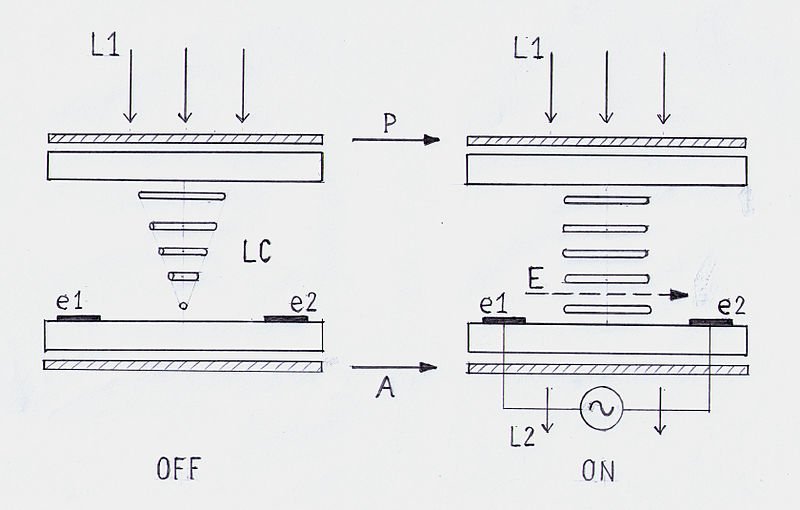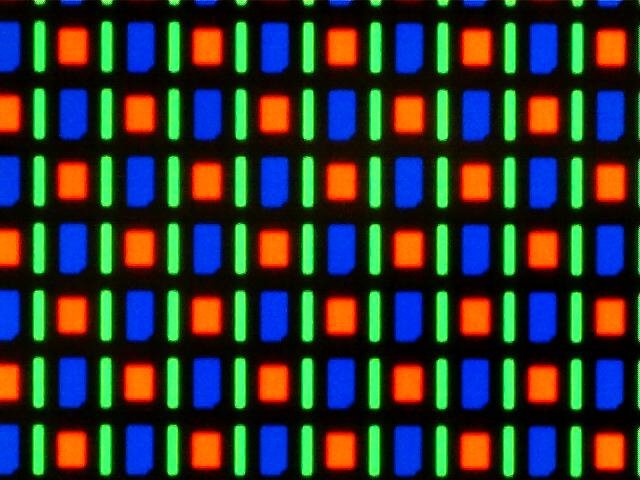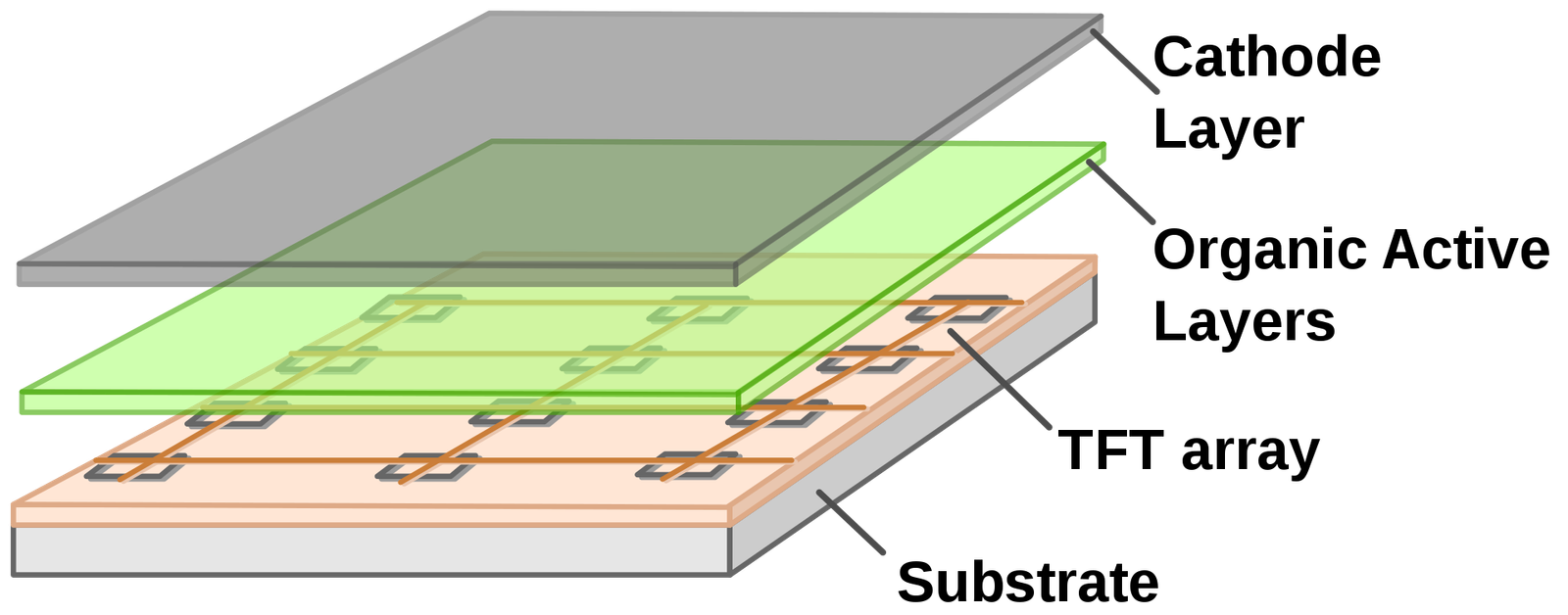The screen is an important part of a device, whether it’s a smartphone, tablet, laptop, or even an AIO. Currently there are two most popular screen technologies, namely AMOLED and IPS LCD. So what’s the difference between the two, and which is better, AMOLED screen or IPS LCD? For those of you who are curious, here is Matob’s review of the two most widely used screen technologies in various gadgets today: AMOLED vs. IPS LCD.
IPS LCD
LCD (Liquid Crystal Display) has existed for a long time and is still widely used in smartphones, tablets, TVs, and the majority of computer monitors. In essence, LCD uses liquid crystals, where one LCD pixel is made of one liquid crystal as a point of light. Behind this liquid crystal arrangement there is a backlight which is the light source. The light that passes through the liquid crystal is then polarized, controlled by horizontal and vertical filters on the side of the crystal arrangement, so that some colors will be transmitted and other colors will be filtered out.


The most widely used LCD technology today is IPS (In-Plane Switching) LCD. IPS LCD screens have various advantages and disadvantages, including:
Advantages of IPS LCD
- Lower production cost than AMOLED
- Have a good color gamut
- Produces a more natural color appearance
- Colors are brighter in direct sunlight
- It doesn’t have a burn-in effect like AMOLED, so it lasts for a long time.
- The resulting image is sharper
Disadvantages of IPS LCD
- Color contrast ratio is not as strong as AMOLED (Black is not 100% black, white is not 100% white)
- More power consuming than AMOLED
- Lower refresh rate and response time than AMOLED
- Because it is equipped with a backlight, the IPS LCD is thicker than AMOLED
AMOLED
AMOLED (Active Matrix Organic Light-Emitting Diode) is a newer technology than IPS LCD. In essence AMOLED uses anode and cathode to flow electrons through a very thin film layer. Brightness is determined by the strength of the electrons flowing, while the color is governed by the red, green, and blue emitting diodes embedded in the screen.


AMOLED technology that is often used today is Super AMOLED. Super AMOLED screens have various advantages and disadvantages, including:
Advantages of AMOLED
- Has a higher contrast ratio than IPS LCD
- More efficient in power consumption, up to 10x more than IPS Display
- Can update the pixel color independently, in contrast to IPS which updates the entire pixel every time there is a color change. The result is AMOLED has a faster FPS and response time.
- Since each pixel is an independent RGB LED, to display black the screen will turn off those pixels, so the black is completely black, and this cannot be achieved by an IPS LCD screen.
- The white color is also better represented by AMOLED than IPS LCD which tends to be bluish.
Lack of AMOLED
- It’s prone to screen burn-in, so if you often use the WhatsApp application for a long time, for example, the WhatsApp icon/design will be left on the screen.
- Production costs are much more expensive than IPS LCDs, especially for large screens. So devices with AMOLED screens are often expensive too.
- If you use black wallpapers and themes, AMOLED is indeed more battery efficient. But if on the other hand, you use white or bright wallpapers and themes, AMOLED can also be more wasteful in power usage than IPS LCD. So whether or not the AMOLED screen is wasteful depends on how you use it.
AMOLED vs IPS LCD, Which is Better?
From the above comparison, it is clear that both AMOLED and IPS LCD have their own advantages and disadvantages. You can decide for yourself which one is the best according to your individual needs.
For example, the average AMOLED screen smartphone has a higher price range than the IPS LCD screen smartphone because the AMOLED screen itself is more expensive than the IPS LCD. (Except for the iPhone, which even though until now still uses an IPS LCD screen, but the selling price is priced very high by Apple). So if your budget is limited, you can choose an IPS LCD screen smartphone.
Or if you want to maximize the durability of your smartphone battery, then you can choose an AMOLED screen and then use a dominant black theme and a black dominant wallpaper, then the power usage by the AMOLED screen will be much more efficient — than if you do it on an IPS LCD screen that wants to be black or bright. will not impact any difference in power usage.
Another example if you are a photo editor or video editor, you can choose a laptop / AIO with an IPS LCD screen because it gives a natural color appearance and is closer to the original, than an AMOLED laptop which provides colors with higher saturation.
For a table of differences in AMOLED vs IPS LCD along with some suggestions for choosing the type of screen, you can see in table bellow
| AMOLED | LCD | |
| Excess |
|
|
| Deficiency |
|
|
From this comparison, it can be seen that the advantage of LCD is that it displays brighter and more consistent colors, but may consume more power than AMOLED. If you consider the light emitted, of course AMOLED is more comfortable for the eyes besides being more energy efficient.
So both AMOLED and IPS LCD both have their respective advantages and disadvantages, and each can be better than the other, depending on the needs and desired needs.
That’s a brief explanation of the difference between AMOLED vs IPS and some scenarios about which one is better based on need. If you have input or questions about AMOLED or IPS LCD, please share them in the comments column.
